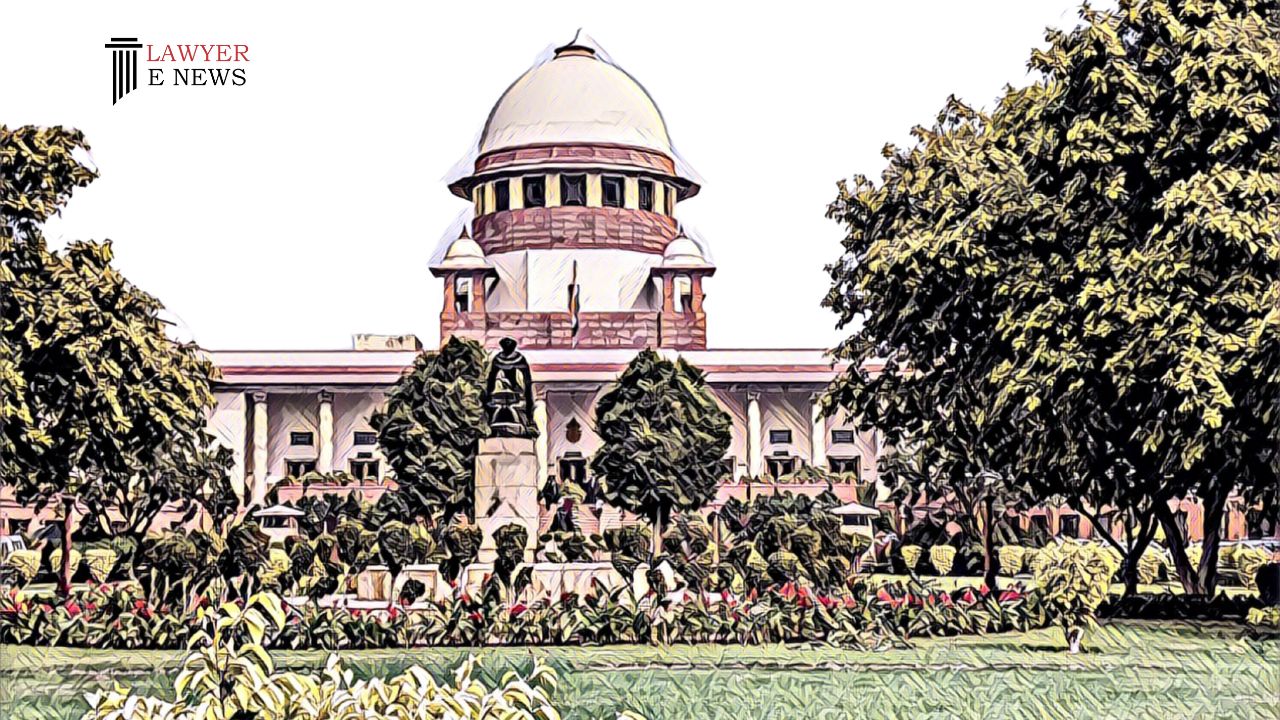-
by Admin
15 February 2026 5:35 AM



New Delhi, May 18, 2023: In a recent judgment, the Supreme Court of India reiterated the importance of strict compliance with the provisions of Section 17 of the Court of Small Causes Act, 1887 while seeking to set aside ex-parte decrees. The Court highlighted the mandatory requirements of depositing the decree amount or furnishing suitable security and the consequences of non-compliance.
The case pertained to an appeal filed by the appellants against the dismissal of their application to set aside an ex-parte decree. The appellants had moved applications under Order IX Rule 13 of the Code of Civil Procedure (CPC) and Section 17 of the Act on the same day. However, the Trial Court did not pass any order on the Section 17 application filed on May 6, 2014.
The appellants contended that the application under Section 17 was validly filed alongside the application under Order IX Rule 13, citing a previous judgment of the Supreme Court in the case of Kedarnath. They argued that the Court's failure to pass an order on the Section 17 application should not prejudice their case. They further claimed that they had provided security in the form of a shop allotted by the Municipal Council, Kanpur.
On the other hand, respondents 1 to 6 argued that the mandatory condition of depositing the security on May 6, 2014, was not complied with. They contended that the subsequently furnished security, which consisted of a shop belonging to the Municipal Corporation, was not enforceable and did not meet the requirements of Section 17. They emphasized that the application under Order IX Rule 13 was rejected not due to a lack of security, but because the security furnished on May 12, 2014, was deemed invalid.
Analyzing the case, the Supreme Court referred to its earlier judgment in Kedarnath, where it held that the proviso to Section 17 should be interpreted strictly and considered mandatory. The Court emphasized that an applicant must deposit the amount due under the decree or seek the Court's direction for furnishing suitable security. The failure to comply with these requirements renders the application to set aside the decree incompetent and not entertainable.
Regarding the specific facts of the case, the Court noted that the appellants had filed the Section 17 and Order IX Rule 13 applications on the same day. However, no security was provided on May 6, 2014. The subsequent security furnished on May 12, 2014, in the form of a rented shop belonging to a third party, was deemed unacceptable in law. The Court observed that the absence of an order on the Section 17 application did not relieve the appellants from their obligation to provide valid security.
The Court held that compliance with the provisions of Section 17, including the timely deposit or furnishing of security, was essential. It concluded that the security offered by the appellants was unacceptable and that they had not established a valid case for setting aside the ex-parte decree.
Supreme Court dismissed the appeal and upheld the decisions of the lower courts. The Court emphasized that strict compliance with Section 17 is crucial when seeking to set aside ex-parte decrees, and any failure to meet the requirements could result in the dismissal of the application.
D.D-18.May.2023
ARTI DIXIT & ANR vs SUSHIL KUMAR MISHRA & ORS
